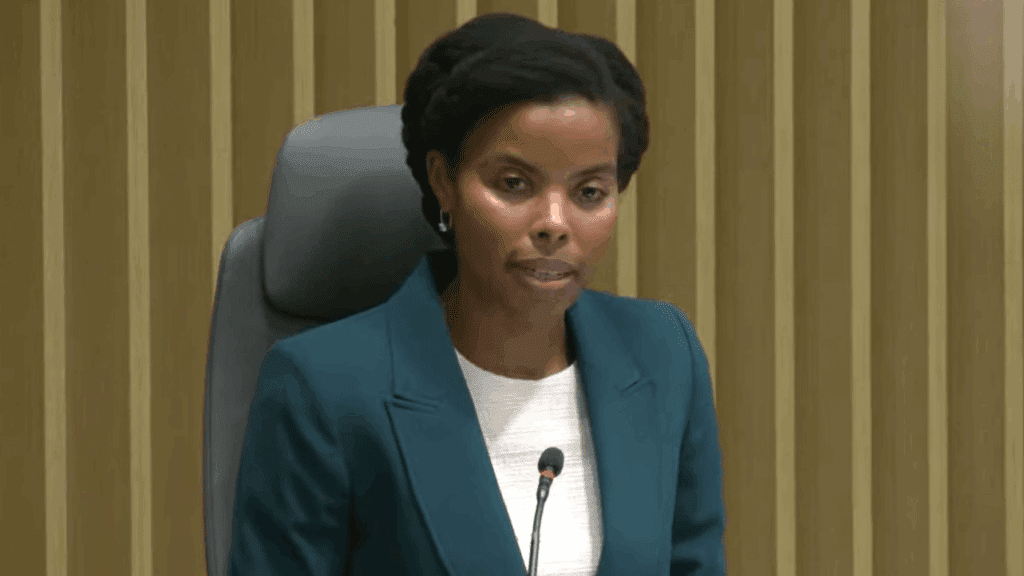Rethinking USF Could Mean New Contributors, Sustained Service and Deregulation
Randy Sukow
|

Congress designed the current universal service fund (USF) system, as codified in the 1996 Telecommunications Act, to maintain telephone service affordability in low-population areas. In the years since, the world has shifted from landline telephones to fixed and mobile internet access. Most organizations responding the FCC’s recently initiated inquiry into USF reform agreed that changes are long overdue.
“As new grant programs come online to help address [broadband] availability challenges, the call from Congress to initiate this proceeding offers a meaningful chance to refocus upon the question of what is needed to ensure universal service after networks are built – what is needed to sustain those networks and to ensure that services keep pace with user demand and remain affordable,” said NTCA – The Rural Broadband Association (DOCX). Over the last several years, USF has changed its focus from the original goal of maintaining affordable existing service to the deploying new networks. “It is time to put ‘service’ back in universal service,” NTCA said.
One of the ways to achieve this is to create better lines of communication with other federal agencies that are now taking the lead in network deployment. At the same time, NTCA said the Commission must reform the USF contribution system to require payments “from large firms whose video streaming and other Internet-based businesses depend substantially on the availability and affordability of robust broadband services throughout the country.”
USF high-cost support in the past was limited to telecommunications providers, especially incumbent local exchange carriers (ILECs). Non-ILECs today are receiving a large percentage of both USF support and from other agencies, USTelecom (PDF) said. “It no longer makes sense for the unfunded incumbent provider to be subject to legacy regulatory obligations. It makes even less sense for the newly funded competitor to be free from any of these obligations while maintaining regulations on incumbent companies.” Together with expanding the list of USF contributors to include broadband internet access service (BIAS), USTelecom suggested a round of deregulation for ILECs. Both actions would adjust universal service to better fit current realities.
Electric cooperatives are among the class of non-ILECs that are now attracting broadband funding from the many federal and state programs. But NRECA (PDF) agreed that the contributions base must expand. “NRECA fully supports action to reform this outdated regime in order to stabilize the funding mechanism and to make contribution obligations more equitable.” The association praised and endorsed recent Senate efforts to reform the contributions system and the proposed Reforming Broadband Connectivity Act (PDF).
Other rural-oriented organizations filed comments in the inquiry to suggest possible USF program changes.
Competitive Carriers Association – “Since the Infrastructure Act’s goals of providing fixed connectivity to everyone overlap with the goals of the Rural Digital Opportunities Fund [RDOF] program, the Commission should repurpose the remaining $11 billion designated for the RDOF Phase II to re-size the 5G Fund budget from $9 billion to $20 billion. Coupled with private investment, a better capitalized 5G Fund would allow the FCC to further its universal service objectives by preserving and expanding 5G connectivity nationwide and preventing an emerging 5G gap for rural and other unserved parts of America.”
Wireless Internet Service Providers Association (WISPA) – “Congress should take action to convert the Commission’s USF programs from Title II telecommunications programs to broadband support programs. Doing so would eliminate the requirement that recipients of high-cost USF support obtain eligible telecommunications carrier designation by state commissions, easing administrative burdens and delays that exist under the dual-layer system that exists today.”
National Tribal Telecommunications Association (NTTA) – “Congress, in enacting the Affordable Connectivity Plan [ACP], took a major step in modernizing how affordability should work in the universal broadband availability world. The FCC should similarly modernize the federal [USF] Lifeline program and adopt a similar monthly subsidy structure.”
Connected Nation Inc. – “The first risk is that RDOF winners will cause their awarded territories to be excluded from eligibility for BEAD [Broadband Equity, Access and Deployment] support, and then themselves fail to perform, leaving the areas still unserved after the RDOF and BEAD programs have run their course. The other risk is that BEAD grants will be awarded for RDOF territories in ways that make the business case for RDOF projects non-viable due to the unexpected entry of a subsidized competitor … Perhaps economywide cost escalation and disproportionate increases in broadband deployment inputs such as fiber optic cable should justify and set bounds to the amounts of BEAD support made available to RDOF winners.”
WTA – Advocates for Rural Broadband – “WTA notes that reform of the USF contributions system is necessary. One option is the inclusion of broadband Internet access service revenues in the USF contributions base, which can be implemented under the existing Communications Act. Another non-exclusive option is the collection of USF contributions from companies that impose substantial costs upon broadband networks while profiting significantly from the existence of those networks. Either or both of these alternatives should be considered as an addition to or replacement of the current USF contribution system that is becoming more and more unsustainable.”
Rural Wireless Association (RWA) – “Everyday consumers and businesses are conducting transactions over broadband connections. A study should be conducted to determine how many of these transactions take place and a determination made on the exponential growth of the number of commercial transactions using broadband … By RWA’s count, if the Commission were to require a small one-cent convenience fee to be charged for every commercial transaction that took place over broadband, the FCC could easily support the universal service fund. One hundred trillion commercial transactions would result in convenience fees totaling $1 trillion dollars at a penny per transaction.”


